- Home
- Helen Dunmore
The Greatcoat
The Greatcoat Read online
The Greatcoat
Helen Dunmore
Random House (2012)
Tags: Horror, Fiction
* * *
In the winter of 1952, Isabel Carey moves to the East Riding of Yorkshire with her husband Philip, a GP. With Philip spending long hours on call, Isabel finds herself isolated and lonely as she strives to adjust to the realities of married life. Woken by intense cold one night, she discovers an old RAF greatcoat hidden in the back of a cupboard. Sleeping under it for warmth, she starts to dream. And not long afterwards, while her husband is out, she is startled by a knock at her window. Outside is a young RAF pilot, waiting to come in. His name is Alec, and his powerful presence both disturbs and excites her. Her initial alarm soon fades, and they begin an intense affair. But nothing has prepared her for the truth about Alec's life, nor the impact it will have on hers ...
Contents
About the Book
About the Author
Also by Helen Dunmore
Title Page
Dedication
Prologue
Chapter One
Chapter Two
Chapter Three
Chapter Four
Chapter Five
Chapter Six
Chapter Seven
Chapter Eight
Chapter Nine
Chapter Ten
Chapter Eleven
Chapter Twelve
Copyright
About the Book
In the winter of 1952, Isabel Carey moves to the East Riding of Yorkshire with her husband Philip, a GP. With Philip spending long hours on call, Isabel finds herself isolated and lonely as she strives to adjust to the realities of married life.
Woken by intense cold one night, she discovers an old RAF greatcoat hidden in the back of a cupboard. Sleeping under it for warmth, she starts to dream. And not long afterwards, while her husband is out, she is startled by a knock at her window.
Outside is a young RAF pilot, waiting to come in.
His name is Alec, and his powerful presence both disturbs and excites her. Her initial alarm soon fades, and they begin an intense affair. But nothing has prepared her for the truth about Alec’s life, nor the impact it will have on hers …
About the Author
Helen Dunmore is an internationally acclaimed writer whose works includes novels, poetry, short stories and writing for children. She has won the Orange prize for A Spell of Winter, the McKitterick Prize and first prize in the National Poetry Competition; she has also been shortlisted for both the T S Eliot Prize and the Whitbread Novel Award. Her books have been translated into twenty-eight languages, and she is a Fellow of the Royal Society of Literature. The Greatcoat is her first ghost story.
By the same author
The Betrayal
Zennor in Darkness
Burning Bright
A Spell of Winter
Talking to the Dead
Your Blue-Eyed Boy
With Your Crooked Heart
The Siege
Mourning Ruby
House of Orphans
Counting the Stars
To Jane
Prologue
IT WAS SIX-THIRTY; two and a half hours since briefing. The men stood around outside the locker room, waiting for crew buses to take them to the aircraft at their dispersals. All day it had been raining, off and on. Cold, wintry East Riding rain. At three the cloud had hung so low that the treetops were hidden. It looked as if ops would be scrubbed again, but then a light wind chased the murk away. They were on. They were going to the big city.
In the locker room earlier, Alec had given Jimmy a ten-bob note. Jimmy had stared at it blankly.
‘What’s this, Skip?’
‘You won your bet, remember?’
Jimmy folded the note and stowed it carefully with his valuables, in his locker. He’d given his winnings to Alec for safe keeping, so he wouldn’t drink them. Now the ten-bob note was locked away with the letter to Phyll he’d written years ago, it seemed; but it was really only months ago, before the crew’s first op. It wasn’t the kind of letter he’d want her to keep, if it came to that. He hadn’t known what to put. He ought to write another, a proper letter she and the kid could be proud of, but he hadn’t got round to it.
‘Bloody jammy bastard,’ said Douggie. ‘I’d have made you go two hundred yards.’
‘Bloody good navigation if you ask me,’ said Jimmy. He was only twenty-two but he had a wife and baby, and ten bob was ten bob. He’d cycled a hundred yards in a straight line with a Waaf on the handlebars, another on the crossbar and a third pillion, and had won his bet. Balance had been the problem but they’d been grounded for two days by fog, and intensive training had paid off.
‘Bang on,’ said Alec.
Jimmy and Les lit cigarettes, heads together. Laney, next to Alec, began to growl under his breath to the tune of ‘Deutschland, Deutschland über Alles’:
We don’t want to go to Chopland
We don’t want to go at all
We don’t want to go to Chopland
Where our chances are f***-all …
No one reacted. It was what Laney did every time, before they got on the crew bus. Now buses pulled up and crew names were shouted into the raw dark. Alec’s stomach burned as it always did. He knew it would stop as soon as he was back inside K-Katie. His mind was fogged with thoughts of Elizabeth but he knew that they too would dissolve. He would be clear as he always was, checking instruments, intercom, controls.
‘Got your gloves, Skip?’
‘Got my gloves,’ Alec confirmed.
His silk gloves were lucky. Each time he climbed into Katie he touched her with them. Each of the crew had his own luck, but they all believed in the Skipper’s gloves. He wore them under two other pairs: chamois leather and wool. He never wore his gauntlets. They were clumsy, and in them he couldn’t get a feel for the controls. He didn’t tell his crew about the other good-luck charm, the private one.
The men swayed in the dim blue light as the bus bounced along the perimeter track. He watched the back of the Waaf who was driving. She had red hair and a big freckly smile for them when they had clambered on, heavy in their flying kit. No one spoke. They were wound up now and they needed to be doing. He checked his crew over in his mind. Jimmy OK, Douggie OK, Les you never had to ask, Syd was A1 again after missing two ops due to a throat infection, Laney OK – but for the whole two days Rod hadn’t been able to stop binding on about the fog. Alec had said nothing, but he’d heard the edge in Rod’s voice and seen the quick, cautious way the others glanced at him. The fog had been bad for everyone. They were too near the end of their tour now, and they didn’t want to be messed around. Twenty-seventh op tonight; after tonight, only three to go. You just wanted it over but you knew you couldn’t think like that. Trying to get things over with was what led to mistakes. Ops being posted and then scrubbed got on everyone’s nerves. You started thinking: If we’d gone ahead last night then we’d be on twenty-eight now, only two more to go after tonight. Tour expired. Even to think about it was dangerous. It was like looking directly at the Aldis lamp as you taxied down the runway, instead of letting it register at the side of your field of vision. That was the way to lose the sharpness you’d built up: the power to see into the dark that swelled all the way from here to Berlin. He wasn’t going to make that mistake.
You stupid bastard, he told himself, you’re already making it.
Chapter One
1952
ISABEL SAT BACK on her heels and watched flames spring up in the grate. They were pale and there was no heat in them. She was cold, she was tired, her back ached and her eyes stung – from the smoke, of course. But at least the fire was lit. As long as she looked only at the blue and yellow flam
es, she could begin to feel at home. The room was so dark, even with the light on. It was crammed with furniture and it smelled of Brussels sprouts.
Philip opened the door. His arms were piled with medical textbooks, right up to his chin. His eyes searched Isabel’s face as she turned to him.
‘Are you warming up a bit?’
‘I’m fine.’
‘You’re too thin, that’s what it is.’
‘I’m not one of your patients, Philip.’
Awkwardly, as he watched, she stood up.
‘I went to the butcher and got a meat pie, just as they were closing,’ said Philip proudly. ‘It was off the ration.’
‘You didn’t!’ He had braved the queue of head-scarved women, all looking sideways at him and maybe clicking their tongues at his presence. Eh, dear, what’s his wife thinking of? He hadn’t cared about his dignity, or the fact that although they might not yet know he was the new doctor, come to work in Dr Ingoldby’s practice, they would recognise him soon enough. Isabel reached out and touched Philip’s hand. ‘That was very clever of you,’ she said.
His lean face softened. ‘You only need to put it in the oven,’ he said.
‘I brought the potatoes with us,’ said Isabel, ‘and those carrots. They’re a bit old, but I cut out the worst bits.’
They had been children of wartime and all they asked of food was that it should fill them. Isabel was a poor cook. Fortunately Philip’s mother was no better, and after years of national service and medical school, he was hardened. He never complained, and he was as proud as Isabel when she brought her watery stews and dense cakes to the table.
They had been married for two months. This was their first home together, after an eight-week eternity of living with Philip’s parents in their narrow house where bed springs cracked like whips and the flush of the lavatory was the bellow of a caged water-dragon. His parents wanted Isabel to call them Mother and Father, as if she and Philip were still children, and siblings. But they were grown-ups. Philip had his first job. Isabel would set up home.
‘I’ll be working all the hours God sends,’ Philip had warned her.
Footsteps crossed the floor above their heads. Slow, heavy, deliberate. All the way to the window they went, and all the way back. The landlady. Philip knew her, because he had handled the negotiations for the flat. The rent was too high, but with the housing shortage it was what you had to expect. Isabel had only glimpsed Mrs Atkinson’s ponderous back-view, clad in a grey working pinafore, disappearing upstairs. That was her idea of welcome, evidently. Their flat was on the ground floor, with a sitting room that looked over the road, a bedroom at the back, and off the bedroom a pokey kitchen with a wooden-lidded bath taking up most of the space. There was a cloakroom in the hall: you had to go out of the flat each time you wanted what the landlady called ‘the facilities’.
‘The facilities are shared,’ she had told Philip grimly. ‘No personal effects are to be left there.’
‘I don’t see why. There aren’t any other tenants,’ Philip told Isabel.
‘She doesn’t want me to hang up my knickers in there.’
The hall was dankly cold. How am I going to live here? Isabel asked herself, and her thoughts plummeted, as they sometimes did, until everything was dark. She fumbled with the lights, fumbled with the cistern chain and had to yank it down twice before it would flush. She thought of herself going in and out at bedtime, with a spongebag containing her toothbrush and a flannel. The landlady was still walking overhead, back and forth. Isabel shivered.
I can’t live here, she almost said to Philip as she came back into the flat. But he was building up the fire and he glanced up at her with such a smile, a naked smile full of hope and doubt, that she said, ‘I’m going to make new covers for the chairs. I can buy material in the market. That will cheer the place up.’
Their bed was vast. They lay still between hummocks of ticking-covered mattress. The iron springs settled beneath them, and there was a faint smell – not unpleasant; just old, Isabel thought. Old polish, old furniture, old dust, and all those many, many nights that other people had slept on this bed. Who were they? Did they lie awake, entwined, whispering, laughing, or did they sleep coldly, each one irritated by the sounds the other made?
If she were at home she would have dragged the mattress out onto the lawn, slung it over chairs and then beaten it until the dust flew and the sweetness of the air got into it. She could remember her mother doing that. But home had ended when Isabel was eight and she went to live with her aunt and uncle because her parents were going out to Singapore. Her father worked for the McPhail Rubber Company. As soon as they were settled, her mother said, Isabel would be coming out to join them.
Isabel could still see her mother beating the mattress furiously, her soft face set stern. But did that ever really happen? How could she have hauled such a heavy thing all the way downstairs? Someone must have helped, but Isabel’s memory had so many holes in it. She had to trust it, though, because she had nothing else.
Philip was asleep. Jealously, Isabel cleared her throat and wriggled until her legs touched his. She was icy. If the flat was like this in September, what would it be like in January? She crept closer to him, but he muttered busily, as if he were writing a prescription for one of his patients, and did not wake.
In the morning Philip left for the surgery at eight, after riddling and stoking the kitchen stove. Isabel watched him. She had to learn how to do everything. Unlike Philip, she hadn’t grown up laying fires, fetching in coal and wood, earning money after school and on Saturdays. She was soft: ‘nesh’ he said, when he was teasing her. By ten o’clock she had made the bed, washed up and laid their clothes in the drawers of the ugly old chest. Upstairs, the landlady coughed. Too close, thought Isabel. They had divided the house into flats but they couldn’t quite separate the lives within it.
Outside the windows an early mist was thinning. There would be sun. She would go shopping. Her aunt had bought her a book called Early Days: An Introduction to Housekeeping for the Young Wife. It advised that ‘the young wife must make a friend of her butcher, fishmonger and greengrocer’.
Certainly, thought Isabel, she had no other friends in the town. She might as well start with a rubicund butcher whose hands dripped with the tang of blood. She picked up her handbag and snapped its clasp with a fat, important click. She was a little girl pretending to be her mother. She would sally forth with her mother’s smile, to coax an extra slice of bacon or assess a piece of cod. If the fish were whole, you could tell how fresh it was from the brightness of its eyes, or so it said in the book. Isabel studied its pages as once she’d studied Milton and Molière. There were no more essays to write or exams to pass. How she missed those clear, sure channels towards the light. She’d done so well in her Higher School Cert that Miss Bellamy had wanted her to try for a university place.
You could have taught, she told herself. You could have taken the Civil Service exams. You chose to marry Philip.
The minster leaned over the end of the street like a black ship. It was beautiful, of course. The shops were in the other direction, in the warren of narrow streets where – somewhere – there was also the marketplace.
At the butcher’s, there was no beef. Mutton or pork was on offer. There was tripe, and kidneys which smelled faintly of urine. The long queue of solid women looked Isabel up and down. Isabel gave over the ration books, and the butcher stamped them. Seven years after the end of the war, and you still had to bite back your protest when the butcher weighed down the scales with fat. Philip’s mother had stressed that it was vital to keep in with the butcher.
She would go home, put the fatty parcel into the meat safe and then she would change into her walking shoes and go out of the town, as far as she could, where there were no shops or houses or watchful, secretive faces. She would walk until even the minster was out of sight.
The town ended suddenly, and Isabel was out on the dusty road, between hedges where the leaves we
re already turning. The land was flat and it spread for miles under hazy autumn sunlight. Isabel walked fast, pushing the miles away from her. The road was wide, for a country lane. Two lorries could pass easily, but the verges were growing over the tarmac, narrowing it, as if its width wasn’t needed any more.
She had been walking for an hour and a half. The town was hidden by a faint swell in the landscape behind her. She must have come four miles, perhaps five. She could hear nothing but birds, tractors, and the wind soughing in the hedges. Somewhere in this vast landscape Philip was doing his rounds after morning surgery. No one on earth knew where she was.
As she rounded the next corner the road widened again. Ahead of her stretched a perimeter fence that went on as far as she could see. But it was broken down in places, and the wide gates swung open. She knew at once what it was. Isabel came from the flatlands of Suffolk, and during her wartime childhood she had woken night after night to the thunder of Lancasters overhead, as they took off from the airfield. The noise seemed to go on for hours, before the last of the aircraft throbbed beyond her hearing. Once, Isabel had been up with earache when the thunder began. Her aunt had grown still, listening: ‘There they go, Isabel.’ Aunt Jean had drawn back the blackout and let Isabel see the lights of the aircraft. ‘There won’t be any lights,’ she said, ‘once they’re over enemy territory.’ The black bombers would be hidden against the black sky. Bombers from all over the east of England would assemble somewhere over the coast, and then the bombing stream would head eastwards, over Holland and on into Germany, towards the Ruhr or the deep heartland of Berlin. Long hours later, they would return; or most of them would. Her aunt would listen for them in the hours before dawn.
Isabel and her cousin Charlie had been taken out to see the airfield when it was still under construction. There was a guardhouse, and Isabel had asked her aunt, ‘What would happen if I ran past the guardhouse? Would they say, “Halt, who goes there?”’

 The Ingo Chronicles: Stormswept
The Ingo Chronicles: Stormswept The Deep
The Deep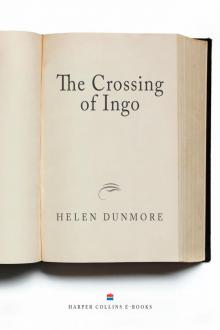 The Crossing of Ingo
The Crossing of Ingo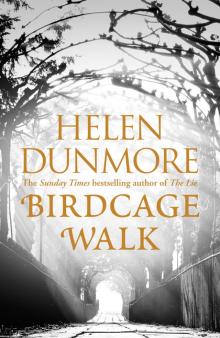 Birdcage Walk
Birdcage Walk Glad of These Times
Glad of These Times Counting the Stars
Counting the Stars With Your Crooked Heart
With Your Crooked Heart Burning Bright
Burning Bright House of Orphans
House of Orphans Mourning Ruby
Mourning Ruby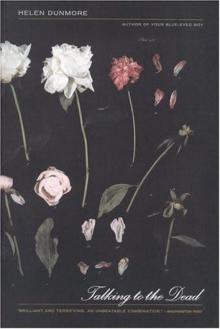 Talking to the Dead
Talking to the Dead Exposure
Exposure Ingo
Ingo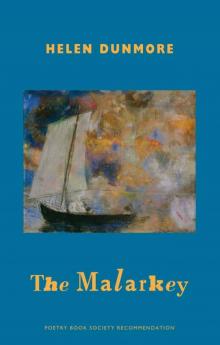 The Malarkey
The Malarkey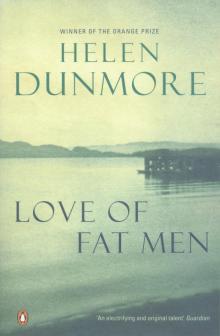 Love of Fat Men
Love of Fat Men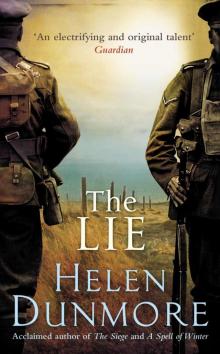 The Lie
The Lie The Siege
The Siege Inside the Wave
Inside the Wave Counting Backwards
Counting Backwards The Land Lubbers Lying Down Below (Penguin Specials)
The Land Lubbers Lying Down Below (Penguin Specials)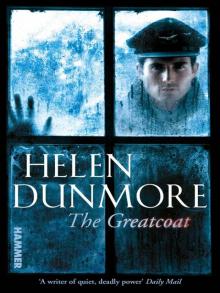 The Greatcoat
The Greatcoat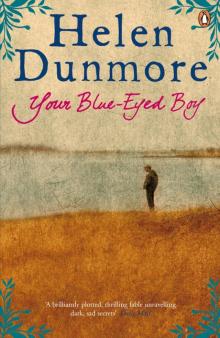 Your Blue Eyed Boy
Your Blue Eyed Boy Zennor in Darkness
Zennor in Darkness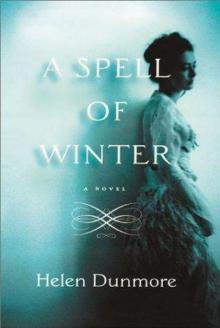 Spell of Winter
Spell of Winter Out of the Blue: Poems 1975-2001
Out of the Blue: Poems 1975-2001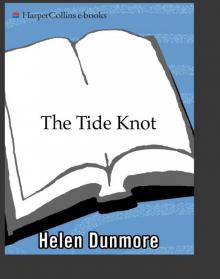 Tide Knot
Tide Knot The Betrayal
The Betrayal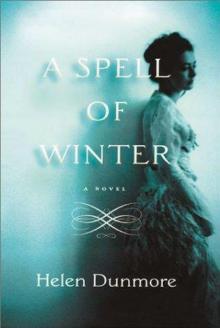 A Spell of Winter
A Spell of Winter Out of the Blue
Out of the Blue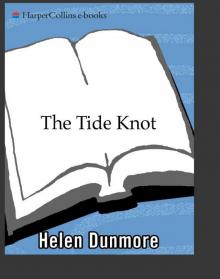 The Tide Knot
The Tide Knot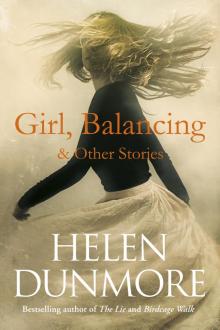 Girl, Balancing & Other Stories
Girl, Balancing & Other Stories Betrayal
Betrayal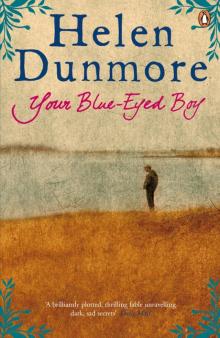 Your Blue-Eyed Boy
Your Blue-Eyed Boy